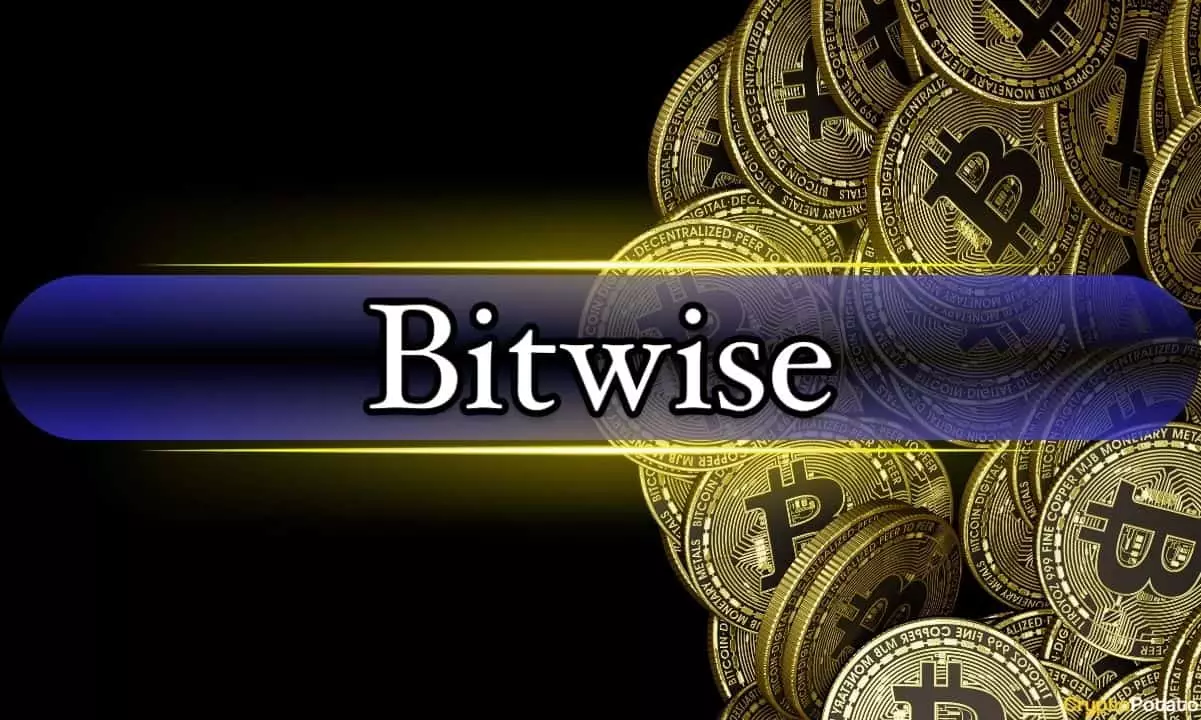In a significant stride towards validating cryptocurrency as a mainstream financial asset, Bitwise Asset Management has recently proposed a new exchange-traded fund (ETF) to the U.S. Securities and Exchange Commission (SEC). This proposal is anchored in Bitwise’s existing 10 Crypto Index Fund, which reflects an increasingly strategic approach to digital assets in the investment arena. The proposed ETF focuses on ten of the leading cryptocurrencies, including Bitcoin (BTC) and Ethereum (ETH), and aims to provide investors with diversified exposure to the dynamic and often volatile crypto market.
The investment structure of Bitwise’s ETF is meticulously crafted to mirror the weighted values of ten leading cryptocurrencies. Bitcoin occupies a dominant position, constituting 75.1% of the ETF’s total value, followed by Ethereum at 16.5%. The other cryptocurrencies in the index—Solana (4.3%), XRP (1.5%), Cardano (ADA) (0.7%), Avalanche (AVAX) (0.6%), Chainlink (LINK) (0.4%), and Bitcoin Cash (BCH) (0.4%)—add layers of diversity that are critical for balancing the inherent volatility of the crypto market. Finally, Uniswap (UNI) and Polkadot (DOT) complete the lineup, each comprising 0.3%. This distribution underscores both an emphasis on established cryptocurrencies and an open, albeit cautious, recognition of emerging players.
Bitwise’s proposal contains essential operational elements aimed at reassuring potential investors. Notably, the fund explicitly states its limitations regarding asset ownership, confining its portfolio to the specified cryptocurrencies and cash, effectively distancing itself from unregulated digital assets. This strategic decision reflects a proactive approach to risk management, particularly in a market often characterized by regulatory ambiguity.
The management of the ETF’s assets will be conducted under strict custody protocols, with Coinbase Custody safeguarding the crypto holdings. Meanwhile, the Bank of New York Mellon will encompass a multifaceted role, overseeing cash reserves as custodian, administrator, and transfer agent. Such a meticulous oversight structure is crucial not only for maintaining investor confidence but also for aligning with regulatory expectations.
The SEC’s involvement is a double-edged sword, as it acknowledges the filing yet refrains from providing a definitive timeline for its decision. A significant aspect of the current regulatory landscape is the recent political changes in the U.S., particularly the election of Donald Trump, which some analysts contend may herald a more favorable environment for crypto-related financial products. The resignation of SEC Chair Gary Gensler adds another layer of uncertainty but also potential optimism regarding future approvals.
This complex web of regulatory sentiment surrounds not just Bitwise but the entire cryptocurrency sector, which is witnessing a surge in ETF proposals. Market expert Nate Geraci has predicted a wave of new filings, driven by the prevailing optimism stemming from recent political shifts.
However, it would be naive to overlook the substantial challenges that continue to loom over the crypto ETF landscape. Industry analysts, such as Bloomberg’s James Seyffart, have cautioned that while interest in altcoin ETFs is growing, significant regulatory hurdles remain. The unique nature of cryptocurrencies—often fluctuating wildly in value, coupled with ongoing scrutiny from financial regulators—poses a risk that could potentially delay the approval process for these investment vehicles.
Bitwise Asset Management’s proposal for a new crypto ETF is emblematic of the evolving nature of cryptocurrency investments. By catering to established assets while cautiously navigating regulatory waters, Bitwise positions itself as a thought leader in the space. If successful, this ETF could pave the way for more financial institutions to embrace crypto—transforming the asset class from its fringe status to more ingrained acceptance in traditional financial markets. As the SEC deliberates, the outcome of this proposal could be a significant marker in the growing acceptance of cryptocurrency ETFs, impacting not just Bitwise, but the entire cryptocurrency ecosystem.

